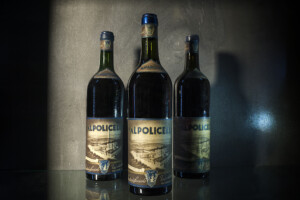
“Wine is a central pillar of our civilization, and many poets have written about it, from Homer to Eduardo De Filippo. But we must learn to use it wisely, so as not to leave the field open to those who fight against alcohol abuse. In alcohol abuse, the tragedy lies in the word abuse, not in the word alcohol. And abuse should be avoided everywhere. Here we are in Montalcino, where viticulture and nature reign supreme. What’s more, there is a great product here, which has been transformed from agriculture into something almost artistic, because here in Montalcino, wine has taken on an artistic form. It often happens that when faced with beauty - the beauty of nature, the beauty of the landscapes and sunsets - I freeze and can no longer write music”, said Nicola Piovani, musician, composer, and Oscar winner, in an interview with WineNews (which strongly wanted him in the concert “Note a Margine” for “Jazz & Wine” 2025, Banfi’s historic festival in Montalcino). In the concert in which he recounted, with his piano, the “Note a Margine” of his professional life, with special, intimate, and amusing memories, accompanied by exceptional musicians, as well as images by cartoonist and friend Milo Manara and films by the masters of Italian cinema with whom he collaborated - from Roberto Benigni, with whom he won an Oscar thanks to the soundtrack of “La vita è bella” but also and above all Federico Fellini, the Taviani brothers, Nanni Moretti, and many others - Nicola Piovani shared his idea of wine.
“Wine is an element closely linked to our civilization, our history, and our poetic culture - Piovani told WineNews - and so many artists and poets who wrote about humanity could not help but write about wine as well. On my way to Montalcino, I thought about how many poets have been deeply involved with wine. Starting with Homer and ending with the last one that comes to mind, Eduardo De Filippo, but there are certainly many others. Wine is a cornerstone of our civilization - Nicola Piovani emphasizes - so we must learn to make good use of it. Otherwise, we leave the field open to those who fight against alcohol abuse. But in alcohol abuse, the tragedy lies in the word abuse, not in the word alcohol. And abuse should be avoided everywhere. Alcohol abuse is certainly a scourge of our times. And, in my opinion, alcohol abuse can also be combated by celebrating a good glass of wine and a wise and poetic use of wine”.
But what connection does Nicola Piovani have with the world of food and wine? “I am an enthusiastic amateur cook, I am not a wine expert, but I drink and I like it. My father was teetotal, he came from a farming community, a small farming community in the Viterbo area. But in that culture, where he was born, the power and beauty of wine was so strong that he insisted on having a bottle of wine on the table. Even when we were little and didn’t drink. Because we had to get used to the beauty and happiness of a bottle of wine on the table”. And a memory tied to the table and the great director Federico Fellini couldn’t be missed: “I remember not so much the large tables, but the small groups of three or four people at lunch with Federico Fellini, which had something epic about them because he was the poet of everyday life, of minimal poetics. Whether he was talking about Kafka or about linguine with tuna, whether onion or garlic were needed (this was a discussion), he always managed to make everything soar, to make the beauty of the table soar”.
Piovani has no doubts about the relationship between music and nature: “It often happens to me that when faced with the beauty of nature, the beauty of landscapes, sunsets, I freeze, I can no longer write music. Because everything is already so beautiful, everything is already so harmonious that it is very difficult to translate. I came here and saw so many shades of green. I think if I were a painter, I would be paralyzed by all this, because you can already see what nature has done. Art starts from here to bring us the complications as well. Because music is harmony on the one hand, and dissonance on the other. And it can symbolize the struggle between harmony and dissonance. Art tells the story of life”, comments Nicola Piovani.
Copyright © 2000/2026
Contatti: info@winenews.it
Seguici anche su Twitter: @WineNewsIt
Seguici anche su Facebook: @winenewsit
Questo articolo è tratto dall'archivio di WineNews - Tutti i diritti riservati - Copyright © 2000/2026